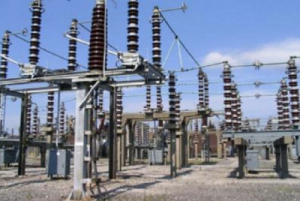The Ghana Integrity Initiative (GII) has called for modest celebration following Ghana’s improved ranking in the Corruption Perception Index (CPI).
The Executive Director of GII’s admonishment comes on the heels of a release of the 2018 Corruption Perception Index by the Transparency International (TI) which has scored Ghana 41 ahead of 37 other Sub-Saharan African countries including Benin 40, Swaziland 38, Gambia 37, and Tanzania 36 in a ranking involving 180 countries.
Ghana’s latest performance is a point higher than its previous performance of 40 in 2017.
However, Mrs. Linda Ofori-kwafo maintains that though the improvement is positive, it is not good enough. Ghana can do better, she lamented.
“Transparency International (TI) says that all countries performing below 50 obviously are not doing well so we should not be rat racing for the bottom place.
We should rather try and go up to where other countries are performing well, Seychelles and the rest are performing far better, like Botswana and the rest are performing better than Ghana. That is what we should be aiming,” the Chief Executive of GII stated.
She has further cautioned that everything must be done to ensure that the country does not recline in its present corruption score.
Possible reasons for Ghana’s improved score
On Monday Ghana Integrity Initiative in a statement among other things gave reasons for Ghana’s improved CPI score.
It said “several factors including policies and initiatives by government and state institutions implemented during the period under consideration could have accounted for this improvement.
The enhanced performance of the Audit Service and the Auditor General in discharging their constitutional mandate and ensuring the protection of the public purse could have made some impact on the 2018 CPI score.
The paperless port clearing system under the Digital Inclusive Agenda and the establishment of the Office of the Special Prosecutor to fight corruption and corruption-related offenses in spite of the office’s teething challenges could have equally impacted on Ghana’s 2018 CPI score.
The ongoing Judicial Service reforms including efforts to promote high standards of integrity amongst Judges and Magistrates, and Judicial staff, and the E-Justice System cannot also go unmentioned.”
Why Ghana could have done better
The statement added that “Ghana’s performance notwithstanding, GII is of the opinion that, the country could have possibly scored higher if allegations of corruption during the period under review were expeditiously investigated, prosecuted and appropriate sanctions meted out to culprits.”
Specifically, GII recommends this: “Government must take a critical look at elements that promote public sector corruption including patronage, nepotism, secret political party financing, suspiciously close ties between politics and business etc and work to minimise if not completely eradicate them from our society as these affect the perception and experiences of stakeholders in the various surveys that are used to compute the CPI.”
GII once again calls on Parliament as a matter of urgency to ensure the passage of the Right to Information (RTI) Bill and the Conduct of Public Officer’s Bill into laws as they are very critical in promoting transparency and public sector integrity necessary for the fight against corruption;
Finally, the government must adequately provide the needed resources to enable state accountability institutions to perform their functions effectively and importantly facilitate the implementation of the National Anti-Corruption Action Plan (NACAP) and also create an enabling environment which guarantees the security and safety of anti-corruption crusaders including civil society organisations and journalists.”
Source: Joy Online






